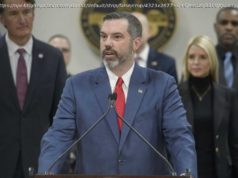President Trump is considering sanctioning Venezuela’s vital oil industry,
President Donald Trump is considering sanctions on Venezuela’s oil industry that could benefit U. S. oil interests, according to a foreign policy expert.
“The Trump Administration likely floating the idea of sanctions on Venezuelan oil clearly shows Washington’s displeasure with the Maduro government, ” Harry J. Kazianis, director of defense studies at the Center for the National Interest, told The Daily Caller News Foundation.
The White House announced Monday it was placing sanctions on Venezuelan President Nicolas Maduro, but there were no comments made on oil. The announcement was a reaction to a Sunday vote to rewrite the country’s constitution. Vice President Mike Pence vowed Friday “strong and swift economic actions” if the vote went ahead.
“However, we have to keep mind that other nations will likely purchase any oil–if we are talking about America cutting back on our own purchases–we don’ t. That could mean China and India as potentially taking those shipments, ” Kazianas said.
The new sanctions won’ t be a total embargo of all Venezuelan oil, sources say, but could include a ban on the sale of U. S. oil and petroleum products to Venezuela along with financial restrictions on the country’s state-owned oil company. They freeze the Venezuelan president’s assets under U. S. jurisdiction and prevent Americans from doing business with him.
Venezuela’s oil is relatively “heavy, meaning it needs to be mixed with “lighter” oil for sale. Venezuela gets much of this “light” oil from the U. S.
U. S. refineries oppose the oil embargo on Venzeula, but Kazianis says they could actually end up benefiting from it in the long term. Restricting Venezuela’s ability to export oil could cause a short term increase in U. S. gasoline prices, but it would also spur the American oil industry to drill more, which would be a long term benefit.
“There could also be some impact on American consumers at the pump, ” Kazianis said. “However, it could also be another incentive for American producers to pump more domestically, pushing America to rely more and more on its own resources at home. So there could be some short term pain for some long-term gain.”
Currently, U. S. gasoline prices are near record lows for the summer driving season summer. This means that any gasoline price increase caused by cutting back on U. S. oil shipments to Venezuela wouldn’ t be too damaging.
Venezuela has some of the world’s largest petroleum reserves, but the collapse in crude oil prices is cutting into state coffers. The U. S. Treasury Department didn’ t return requests for comment on the potential sanctions to the WSJ.
The government run oil industry supplied 95 percent of Venezuela’s hard currency, so U. S. sanctions could accelerate the country’s economic meltdown and force the nation to default on its debts. Venezuela is already in a state of economic collapse and the country’s socialist government is only tightening its grip.
“Even limited new US-imposed sanctions or discussions of broader sanctions could be a catalyst for Venezuela defaulting on its upcoming debt payments, ” the investment firm Barclays said in a recent notice.
Socialist officials stripped the country’s congress of power in late March in what opposition leaders called a coup. Venezuela’s Supreme Court ruled that all powers vested under the legislative body will be transferred to the country’s highest court. The ruling effectively cedes total control of the country to the Socialist Party, and other countries are now officially calling Venezuela “a dictatorship.”
Venezuelans are living with the consequences of decades of socialist economic policies. Price controls, for example, forced businesses to sell food at low prices, encouraging farmers to sell on the black market or outside the country.
Since the socialist government seized power, 75 percent of Venezuela’s citizens have lost at least 19 pounds each amid serious food shortages last year, according to research published in February. This is largely because the poor economic policies of the socialist government have left Venezuela cash-strapped and unable to pay for food imports after years of mismanagement, heavy spending on poorly-run government programs, and lack of investment on its oil fields.
The country’s inflation rate is expected to top 1,640 percent in 2017, according to the International Monetary Fund. Inflation is leading to the country’s currency getting replaced by new cryptocurrency backed by memes of Pepe the Frog. Using these memes as money grants anonymity, making it harder for the government to control the tech industry. Others have noticed and started using digital money in place of paper money.
Follow Andrew on Twitter
Send tips to andrew@ dailycallernewsfoundation.org .
Content created by The Daily Caller News Foundation is available without charge to any eligible news publisher that can provide a large audience. For licensing opportunities of our original content, please contact [email protected] .






